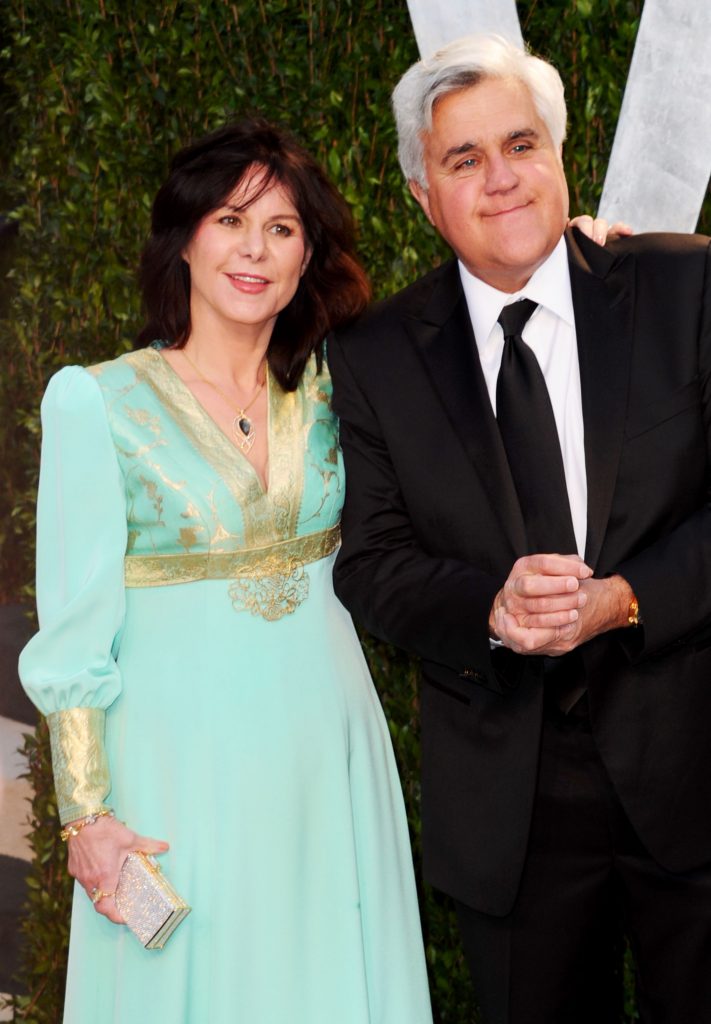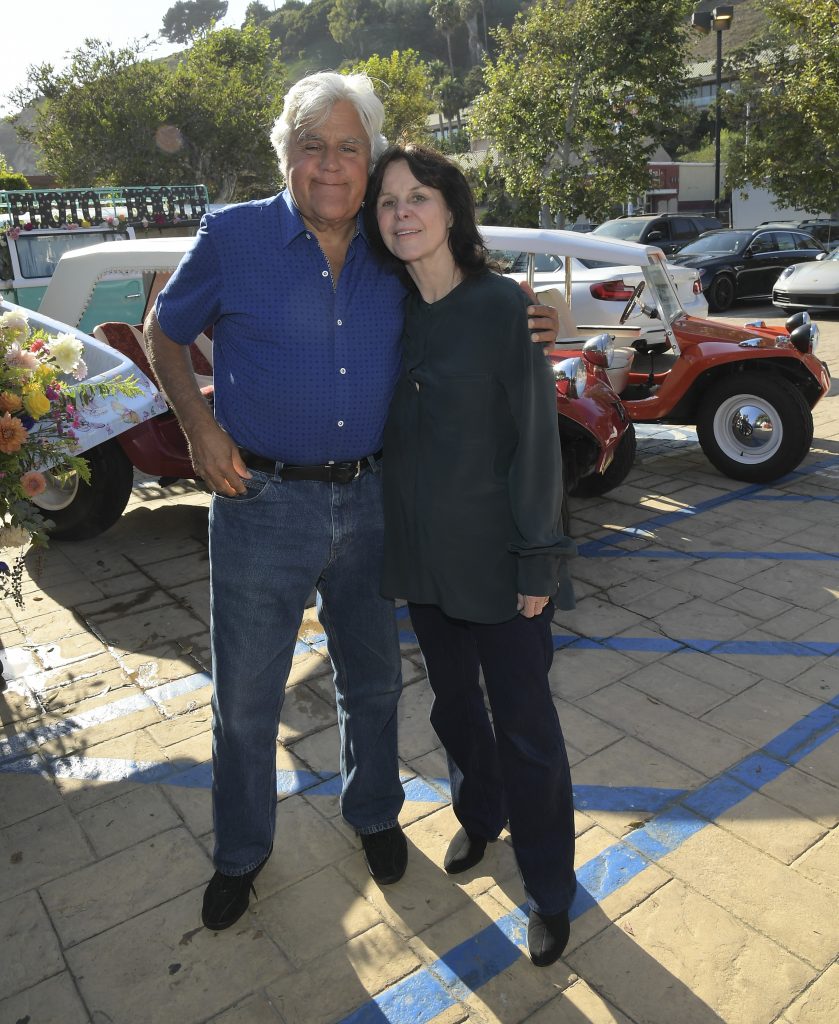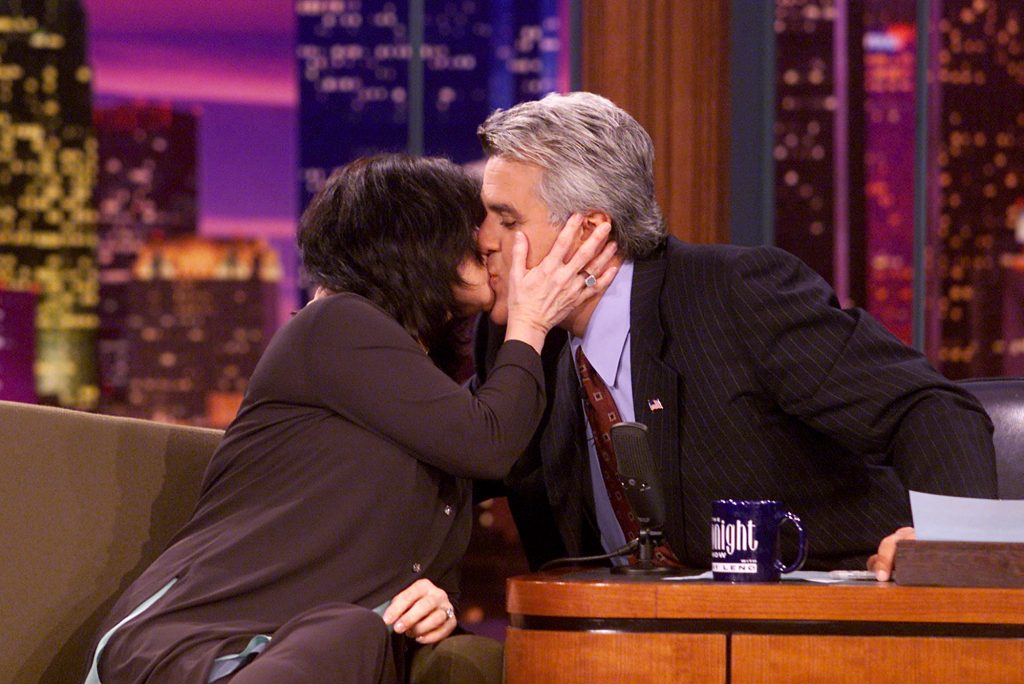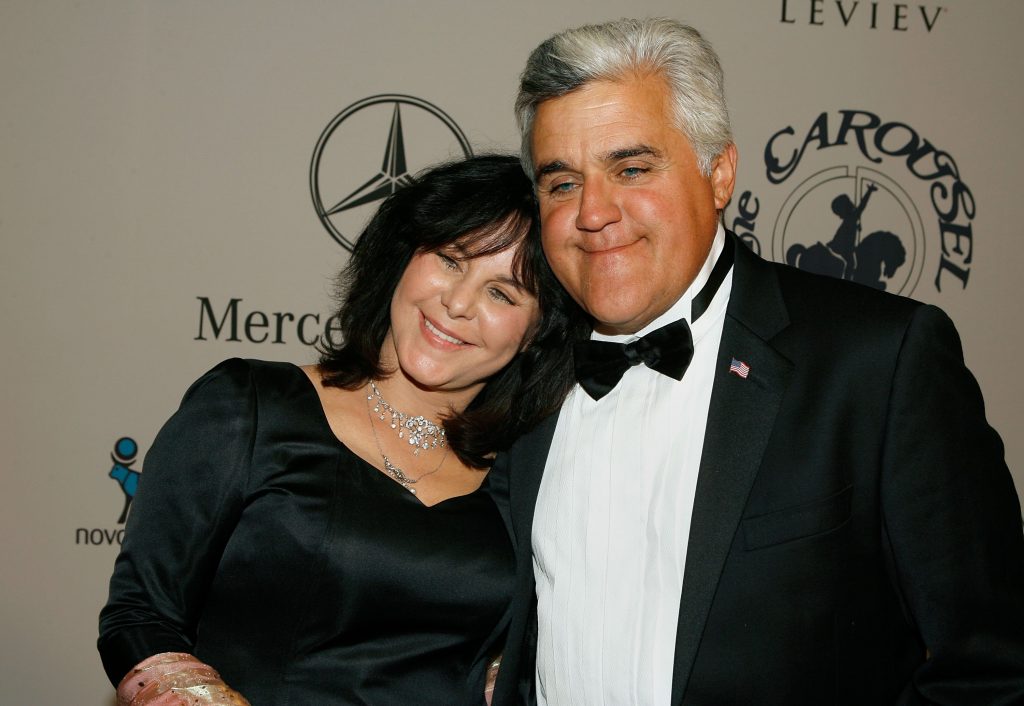A Difficult Diagnosis
- Veteran TV host Jay Leno, 73, is taking careful steps to ensure his beloved wife of nearly 44 years is properly cared for, disclosing in conservatorship paperwork filed on Friday that Mavis Leno, 77, is unfortunately suffering from “major neurocognitive disorders” following a dementia diagnosis.
- Alzheimer’s is the most common form of dementia, which is a “gradual decline in memory, thinking, behavior and social skills,” according to Mayo Clinic.
- Assuming the role of a cancer caregiver when a spouse, parent, sibling, child, or friend is diagnosed with a challenging health condition comes with a unique set of responsibilities. The first thing to understand is that there is no shame is asking for help. This can be an overwhelming time for both patients and their caregivers, too.
Alzheimer’s, which hasn’t yet been confirmed as Mavis’ official diagnosis, is the most common form of dementia, which is a “gradual decline in memory, thinking, behavior and social skills,” according to Mayo Clinic.
Read More
Though all parties must typically be present during a court hearing for a conservatorship, Leno is reportedly requesting that Mavis not attend the hearing as it would be “detrimental to her mental and physical health.”
Noting their “loving marriage for more than 43 years,” Leno shared that he “has always handled” the couple’s finances and wants to make sure his wife has “managed assets sufficient to provide for her care” should she outlive her husband.
Jay and Mavis Leno’s Love Story
Jay and Mavis Leno met back in the 1970s after one of his performances at The Comedy Store, which is a world famous comedy club located on the Sunset Strip in West Hollywood. Still featuring top talent today, the venue has welcomed Dave Chappelle, Chelsea Handler, Bill Burr, Theo Von and Chris Rock, along with late legends like Robin Williams and Bob Saget.
Leno and many of his colleagues wound up boycotting the club in 1979, going on strike to demand wages for comics. The following year, he and Mavis married, but never had children.

“I always had this idea that I would never get married,” Mavis told PEOPLE back in 1987. “But with Jay, I began to realize that this was the first time I was ever with someone where I had a perfect, calm sense of having arrived at my destination.”
And Leno has a proven longevity both in his marriage and career.
Perhaps most know as the long-running host of the The Tonight Show with Jay Leno on NBC, Leno’s first episode aired on May 25, 1992 and his last, 22 years later on Feb. 6, 2014.

Leno has always been a protector, sharing with the L.A. Times in 2014 that marrying Mavis was important to him because he wanted the San Francisco-born philanthropist to be covered by his insurance in the case of emergency.
“I had this insurance policy, and I thought if something happened to me, my girlfriend wouldn’t be covered, but if we’re married, we’re covered, so … we might as well get married.”

“Not the most romantic,” the Jay Leno’s Garage star joked.
Many would beg to differ, as Leno is still putting his wife’s needs first over four decades later.
The Complex Role of Caregiver
Assuming the role of a cancer caregiver when a spouse, parent, sibling, child, or friend is diagnosed with a challenging health condition comes with a unique set of responsibilities.
The first thing to understand is that there is no shame is asking for help. This can be an overwhelming time for both patients and their caregivers, too. Our experts support taking the time to care for yourself and prioritizing your own health so that you will be able to then care for your loved one.
RELATED: ‘Be Proud Of What You’re Doing’ — Justine Almada’s Ode to Cancer Caregivers
“Caregiving is the most important job in the universe, because you are there through the highs and lows,” Julie Bulger, manager of patient and family-centered care at Vanderbilt-Ingram Cancer Center in Nashville, Tennessee, told SurvivorNet in a previous interview. “You are there to support your loved one, to manage all of the daily tasks as everything is changing in your life.
“There’s so much evidence that outcomes are better when somebody has an incredible caregiver by their side,” Bulger added.
WATCH: Caring for a loved one diagnosed with cancer or disease.
Through interviews with expert oncologists, social workers, patients advocates, and more, we’ve come up with a checklist of helpful steps cancer caregivers can take throughout the journey.
Cancer caregivers may:
- Attend doctor visits with the patient
- Help the patient take notes/ask questions
- Provide transportation to and from treatment
- Accompany the patient during treatment
- Help keep track of side effects
- Link up with a social worker/patient navigator
- Help with day-to-day activities
- Provide emotional support
Learning More About Alzheimer’s
Alzheimer’s, described by the National Institute on Aging as “a brain disorder that slowly destroys memory and thinking skills, and, eventually, the ability to carry out the simplest tasks,” affects more than 6.5 million people across the U.S.
According to the Mayo Clinic, “a very small percentage of people who develop Alzheimer’s disease have the young-onset type. Signs and symptoms of this type usually appear between ages 30 and 60 years. This type of Alzheimer’s disease is very strongly linked to your genes.”
“Scientists have identified three genes in which mutations cause early-onset Alzheimer’s disease,” Mayo Clinic continues. “If you inherit one of these mutated genes from either parent, you will probably have Alzheimer’s symptoms before age 65. The genes involved are: Amyloid precursor protein (APP), Presenilin 1 (PSEN1), and Presenilin 2 (PSEN2).”
Caregiving: An Opportunity for Healing
Meanwhile, 15 to 25 percent of the general population carries an APOE e4 allele. The gene APOE e4 is a gene that increases the risk of Alzheimer’s and is associated with getting the disease at an earlier age.
The Mayo Clinic explains that “having at least one APOE e4 gene increases your risk of developing Alzheimer’s disease two- to threefold.” But having two APOE e4 genes makes your risk even higher “approximately eight- to twelvefold.”
If you have a family history of dementia or other serious health diseases, you should talk with your doctor about which genetic tests may be right for you.
Learn more about SurvivorNet's rigorous medical review process.
